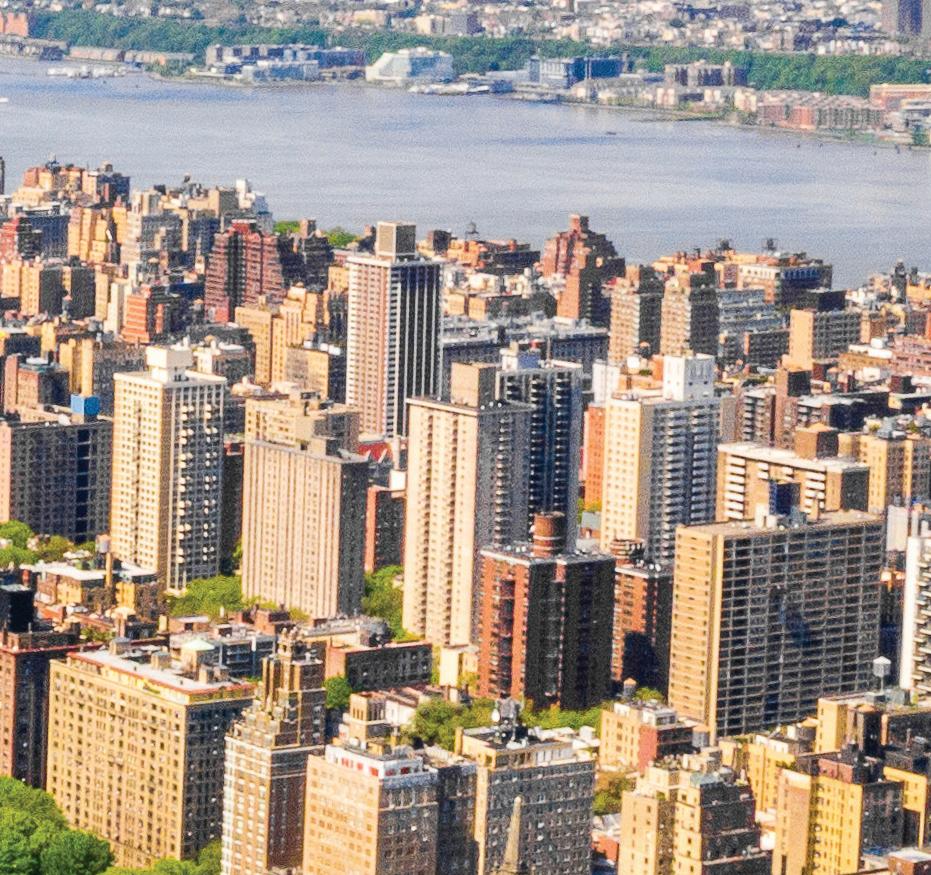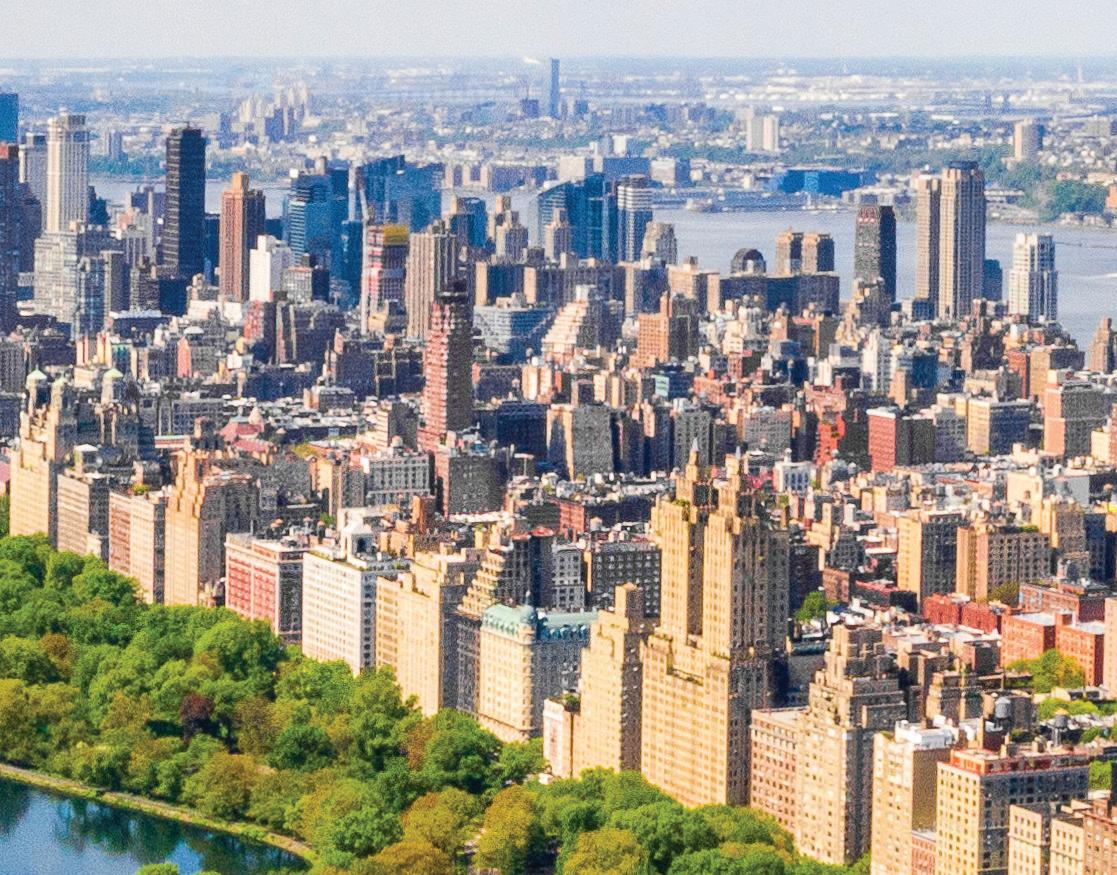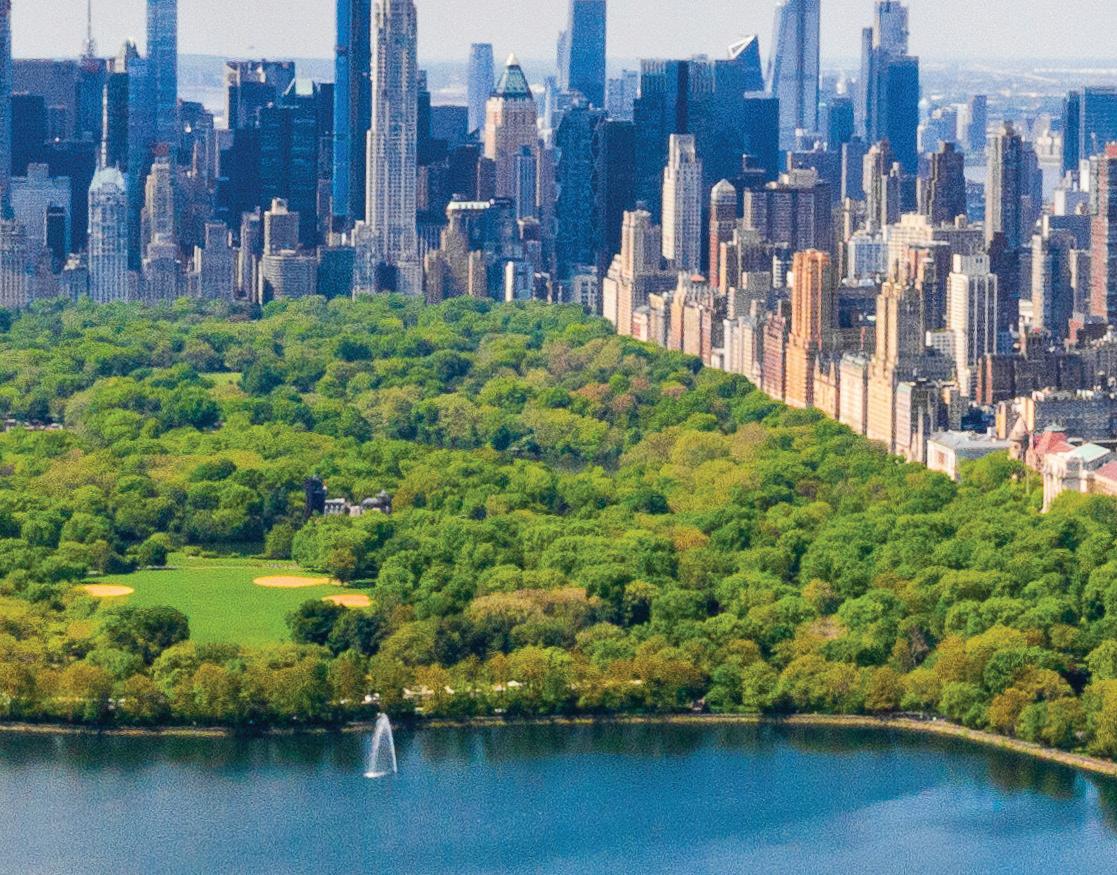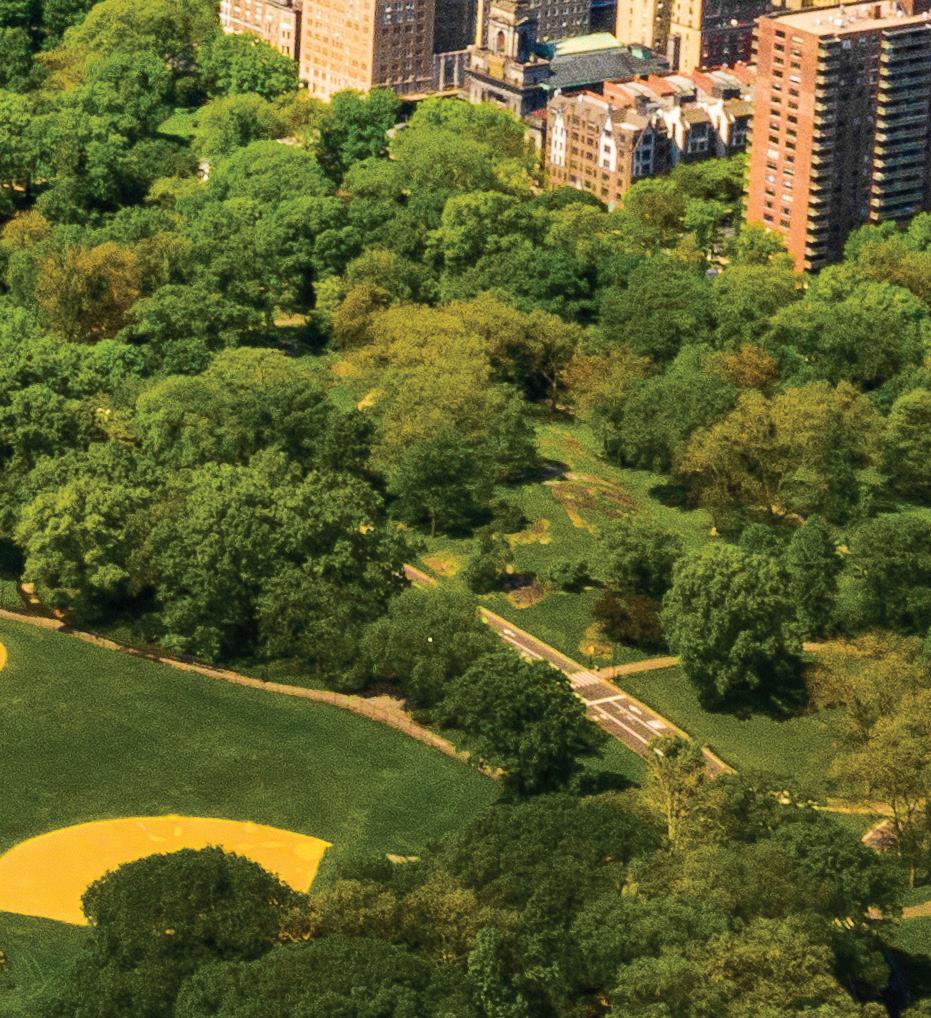
9 minute read
THE WORLD CUP OF NEW YORK




Gaming America closely examines the bidding process to add a casino to the New York City cultural and entertainment landscape. Michael Hershman, CEO of the Soloviev Group, is also on hand to provide exclusive insight into his company’s bid.


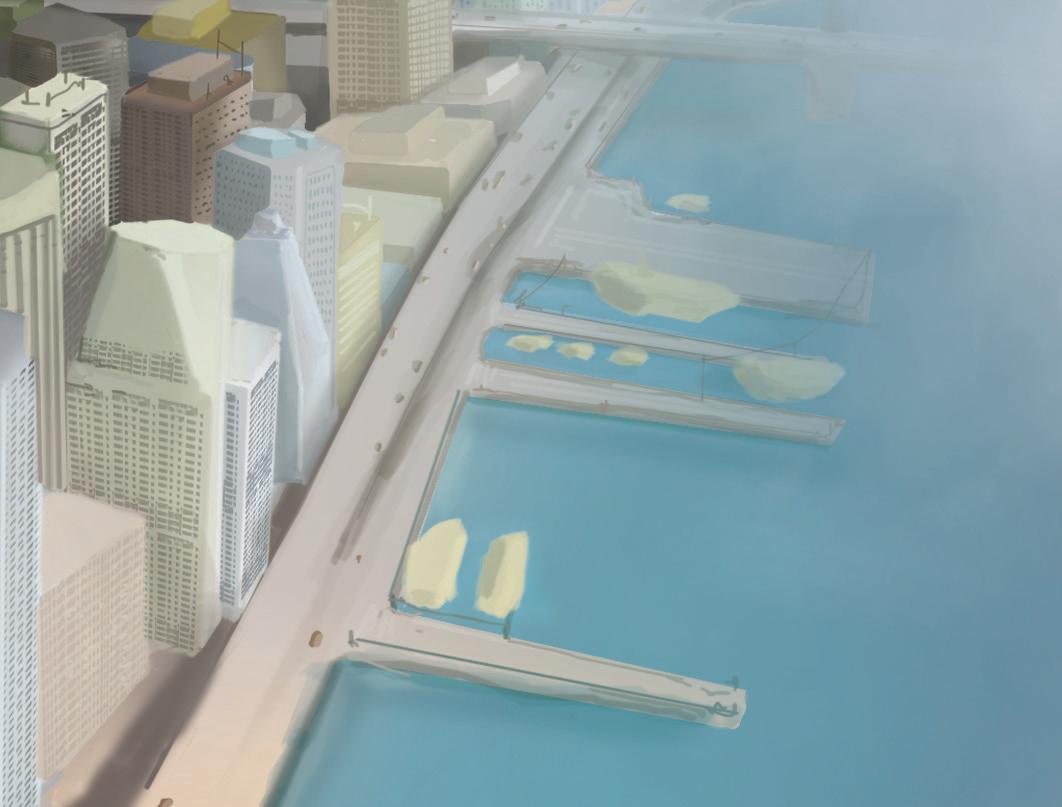
New York City calls to tourists from many iconic destinations. Times Square, Broadway, Central Park and the Statue of Liberty all welcome visitors with open arms. The New York City skyline is one of the world’s most recognizable architectural triumphs, but is the Big Apple missing something at its core? Though the Empire State currently houses two ‘racinos,’ in Queens and Yonkers, New York City has yet to add a world-class gambling establishment to its list of famed landmarks and attractions. Something to rival neighboring Atlantic City – or even Las Vegas.
But start spreading the news: there’s been an approval of three downstate casino licenses. Now property developers and casino operators have a creative, economic and surprisingly political challenge as they submit their $500m bid proposals. Many may enter, but three will win, in this casino battle royale.
WHO WANTS TO BE A PART OF IT?
In early January, the process began. A 10-year prohibition on Downstate gaming expired and at least a dozen companies are bidding for the chance to put their individual properties – and casinos – on the map. The initial casino licenses will run from 10 years to 30 years, based on the investment of the winning bidder. To find out more, Gaming America spoke to Michael Hershman, CEO of the Soloviev Group, who is partnering with the Mohegan Tribe – with a view to scoring one of the coveted casino licenses for a property that’s ready to go in Midtown East.
Hershman began, “We own a piece of property on 1st Avenue between 38th and 41st Streets. It’s right on the East River, two blocks from the United Nations. It’s the largest piece of undeveloped land in Manhattan, and it is currently zoned for both residential and commercial. It’s shovel-ready, if you will. We can begin building as soon as we’re awarded the license.”
Only three licenses will be granted, of course, and several large gaming industry players have already thrown their hats into the ring. So Hershman’s confidence is commendable but the process is far from a foregone conclusion. Wynn Resorts and Related Companies have bid to develop an up-and-coming plot of Hudson Yards land, also located in Midtown. Las Vegas Sands is hoping for a casino at the site of the Nassau Veterans Memorial Coliseum on Long Island, though this will mean potential visitors will have to leave the bright lights of Manhattan. Billionaire and New York Mets owner, Steve Cohen, plans to work with MGM to put a casino in Queens next to the Mets' Cifi Field. Thor Equities Group Founder Joseph Sitt has also partnered with Saratoga Casino Holdings and the Chickasaw Nation to build a casino even further afield, amid Coney Island’s vintage amusements.



Bally’s Corporation, however, has revealed plans to turn a golf clubhouse owned by the Trump Organization into a casino in the Bronx. A deal occurred in December that gave Bally’s control of 17 acres of the 192-acre Trump Golf Links and Ferry Point. The project is valued at around $2.5bn and will include the removal of the large ‘Trump Links’ sign on the course, but only if it wins a license. An official with Bally’s told the New York Times that “any company’s association with the Trump name is likely to kill an otherwise viable casino bid.”
Another contentious proposal comes from SL Green Realty Corp, which currently owns an office building at 1515 Broadway – in an area better known as Times Square. The company plans to turn eight floors in an existing 54-story tower into a casino with Caesars Entertainment. Times Square is often seen as the center of the New York City universe, with approximately 330,000 people passing through daily; to some this could be the obvious spot for a new casino.
The existing racinos could, though, be considered frontrunners in this exciting process, as granting licenses to them would simply raise their existing gambling options, rather than require the city to go all in on a new locale. Hershman said of the competing bids already on the table, “We’re up against some of the most powerful and some of the most formidable people in the state. So I call it the World Cup of New York, this process. I very much respect our competitors.”
Making A Brand New Start




Hershman has already spoken highly of the Soloviev Group’s partnership with Mohegan. “We like their style, frankly. We like their success,” he said. “They are the largest casino owners in the Northeast with many of their players coming New York, Connecticut, New Jersey, Pennsylvania and elsewhere. But what we particularly like about them, and what sold us on them, is their commitment to social responsibility and giving back to the community, which is very much in line with our thinking. We want to make this an entertainment district for the local community, not only for visitors, but for those that live in the area.”
The Soloviev Group has plans for not only a casino, but for an entire project it is calling Freedom Plaza. Reportedly, the casino itself would be less than 20% of overall land usage. “We have right now approved zoning to build 2.8 million square feet of space. We would dedicate part of that space to the casino hotel. About four acres would be dedicated to a park for use by the community. We would also build a museum that would be dedicated to the promotion of democracy, freedom of the press, human rights and freedom of religion.” As the Soloviev Group is approved for both commercial and residential buildings, two residential buildings will also be in the works as Freedom Plaza’s new neighbours. Hershman added, “Part of those buildings would be for affordable housing, which is in very short supply here in this city.”
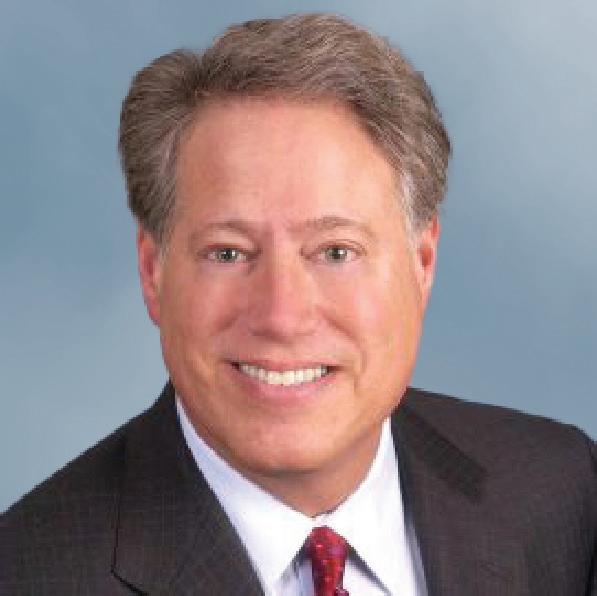
Though the Soloviev Group does have a hospitality and retail division within the company, this would be its first diversification into the gaming industry. Hershman said of the transition to potential casino ownership, “We own hotels, restaurants, a winery and other entertainment sorts of businesses. And we just thought a casino would be a natural extension for our entertainment division.” Hershman also stated that the area where the incipient property lies is “not overly populated” by retail, restaurants or other amusement, which a casino on Freedom Plaza aims to deliver. “We’d bring some retail and restaurants to an area that sorely needs it and also hotel rooms. Because of the proximity to the United Nations, there is always a need for more hotel rooms in that area.”
Hershman was resolute in the project’s community-building approach. He clarified a previous comment about how the development could create 2,000 new jobs. “Now we’re estimating, as we get a little bit more involved in responding to the request for applications, we believe we will create between 4,000-5,000 full-time positions.”





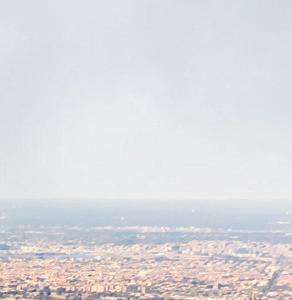
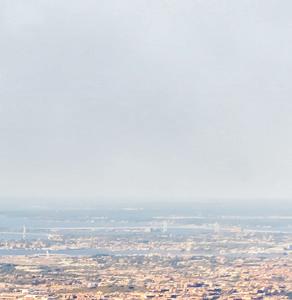
IF A CASINO CAN MAKE IT THERE…
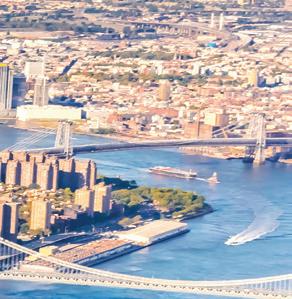

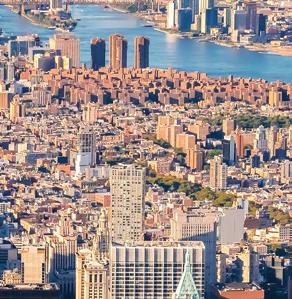
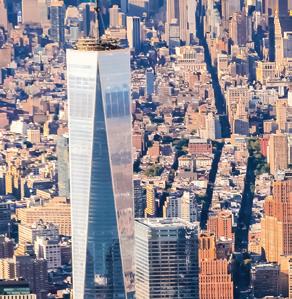
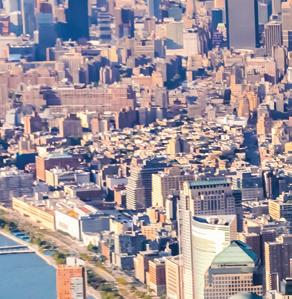
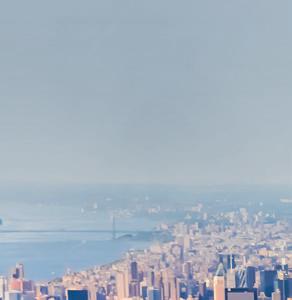


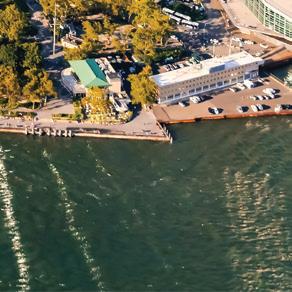
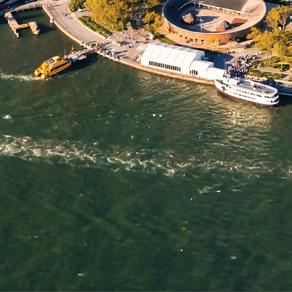
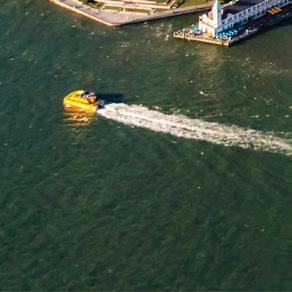


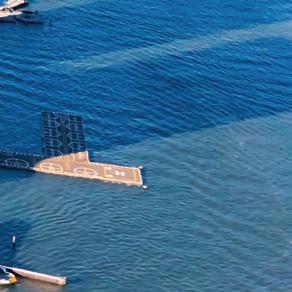
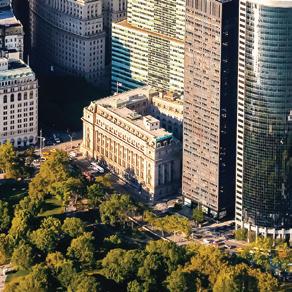
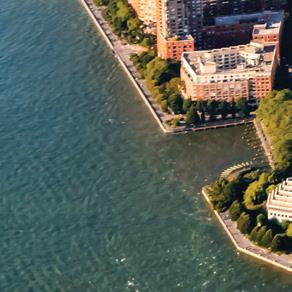


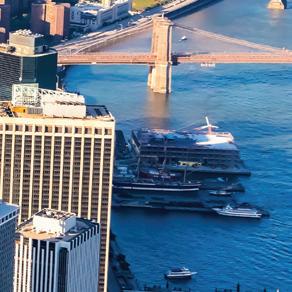
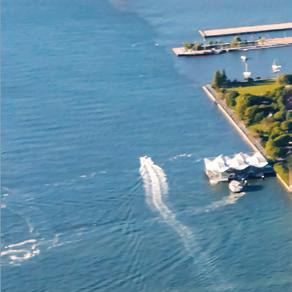
However, any casino looking to win one of the three licenses will need approval not only from New York City officials and state regulators, but also local committees, institutes and residents near the proposed locale. There is a balancing act between attracting tourists and coexisting with established communities, and the new casinos will need public support to truly be successful. Vocal opposition by local committees could stop a casino bid in its tracks.
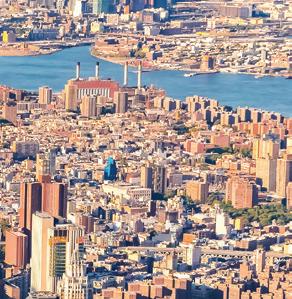
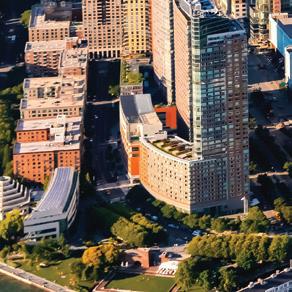
The application procedure has been designed so that for each casino bid, a local Community Advisory Committee must be formed. Committees will have six members, including the Governor, Mayor and local State Senator. The casinos must pass a two-third vote in favor of their bid before moving onto regulatory consideration. Several casinos have seen both great shows of support as well as opposition – often within the same communities.
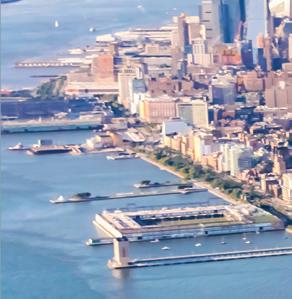

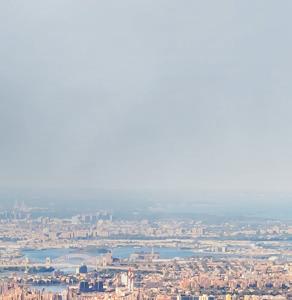
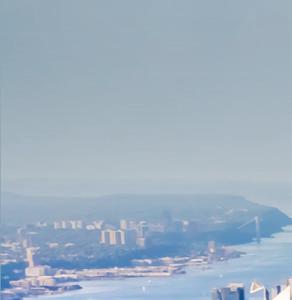
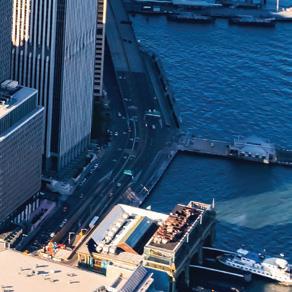
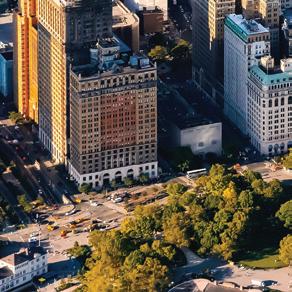

The New York State Latino Restaurant, Bar & Lounge Association (NYSLRBLA) is enthusiastic for the proposed SL Green and Caesars casino in Times Square. NYSLRBLA President Jeff Garcia said, “Times Square is the right place for New York’s next gaming destination, hands down. It’s great not only for the Times Square area but for the city as a whole. We believe the increased tourism is going to directly benefit small, minorityowned businesses across the five boroughs.”
However, the impact of a Times Square casino has not been positively perceived by the theater district. A new organization, started by the Broadway League, aptly titled the “No Times Square Casino Community Coalition,” includes a local church, a bus association, a tenants’ association and businesses that have previously been dedicated to serving the area’s patrons of the arts. Max Klimavicius, owner of iconic, 100-year-old Broadway-linked restaurant Sardis, has said, “A casino in Times Square has the potential to jeopardize the character of the theater district and ultimately the fate of its restaurants.”
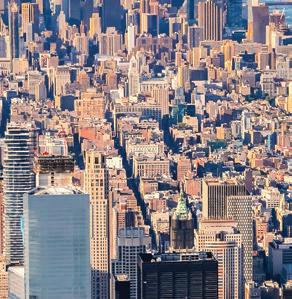
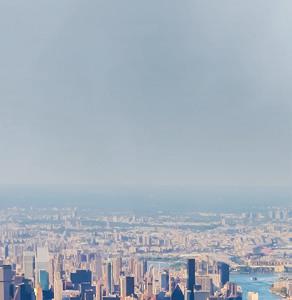
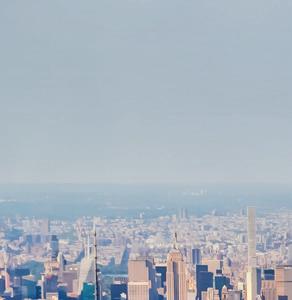

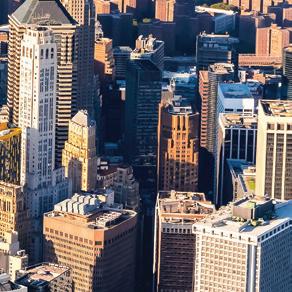
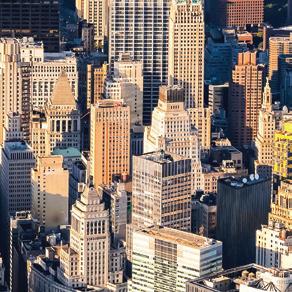
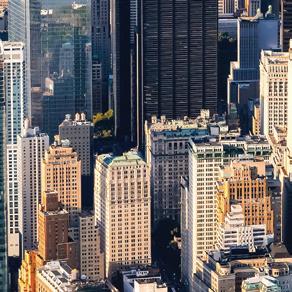
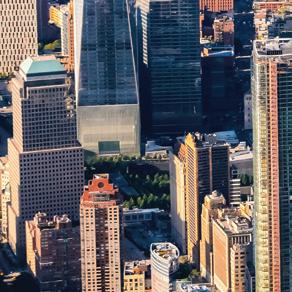

Before the Covid-19 pandemic, Broadway and off-Broadway theaters in New York provided a historic, stable boost to both the city’s economy and culture. Charlotte St. Martin, President of the Broadway League, added, “We are just coming back and getting healthy, and we believe that a casino will damage that character and damage [theater] attendance.”
City & State New York reported that a coalition has formed to petition for Coney Island to win one of the potential licenses. The petition in question includes a line saying, “As a Southern Brooklyn resident, I support creating good jobs and new economic growth by establishing a new casino and entertainment district in Coney Island.” By April 2023, it had received over 3,000 signatures. Yet Coney Island residents, part of Community Board 13, held a meeting where all present were in opposition. One member commented that they had not heard from a single person who had signed the petition in favor.
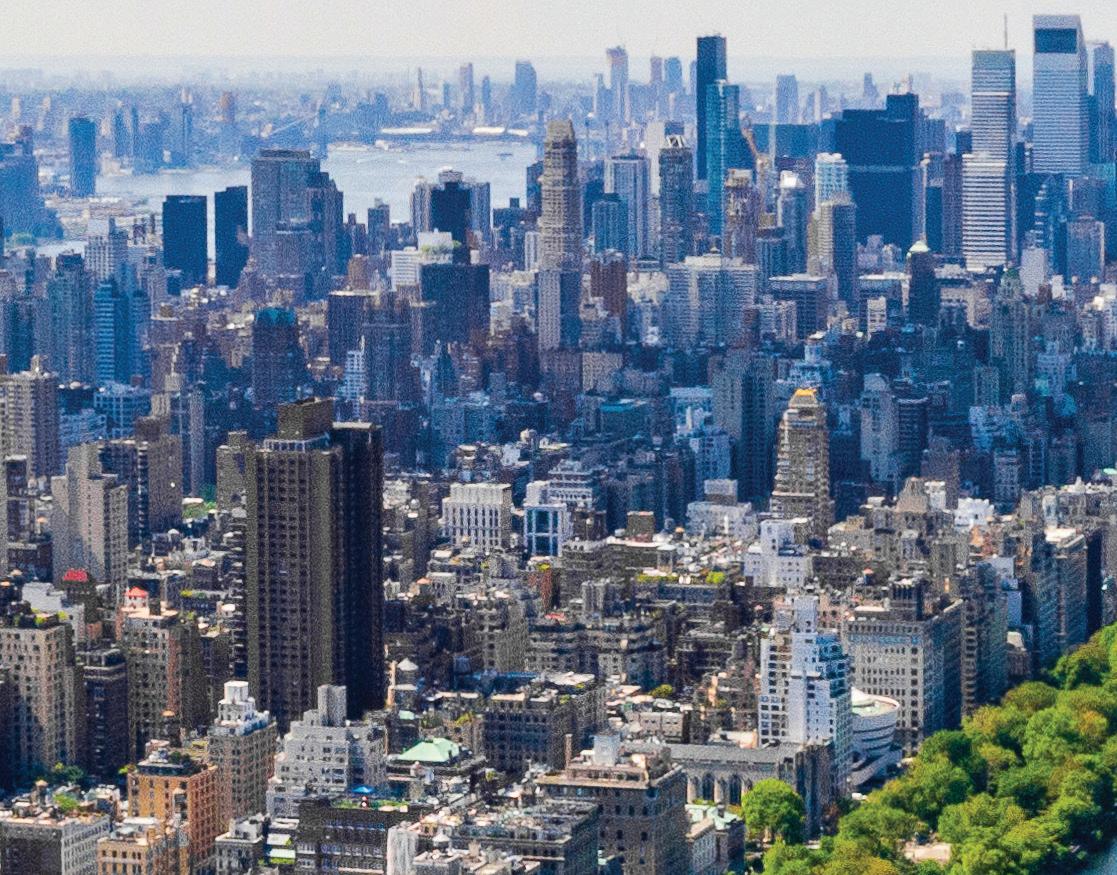
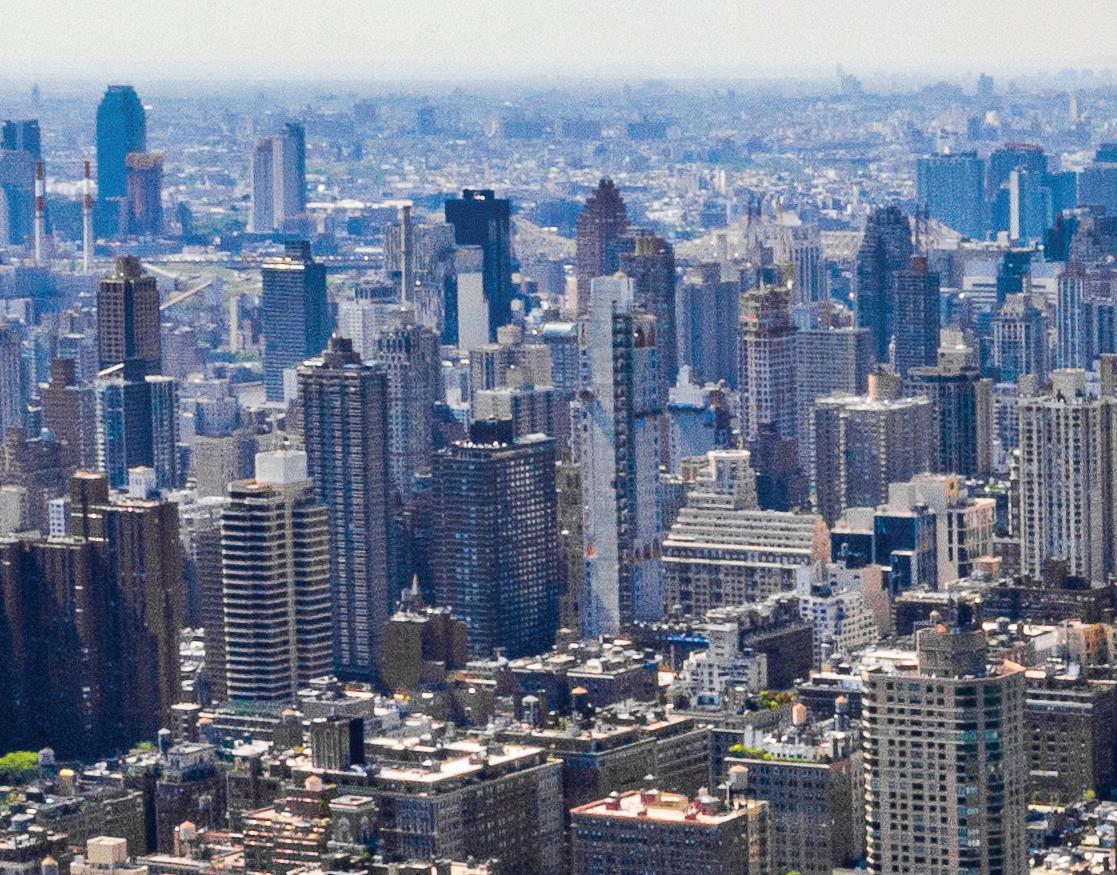

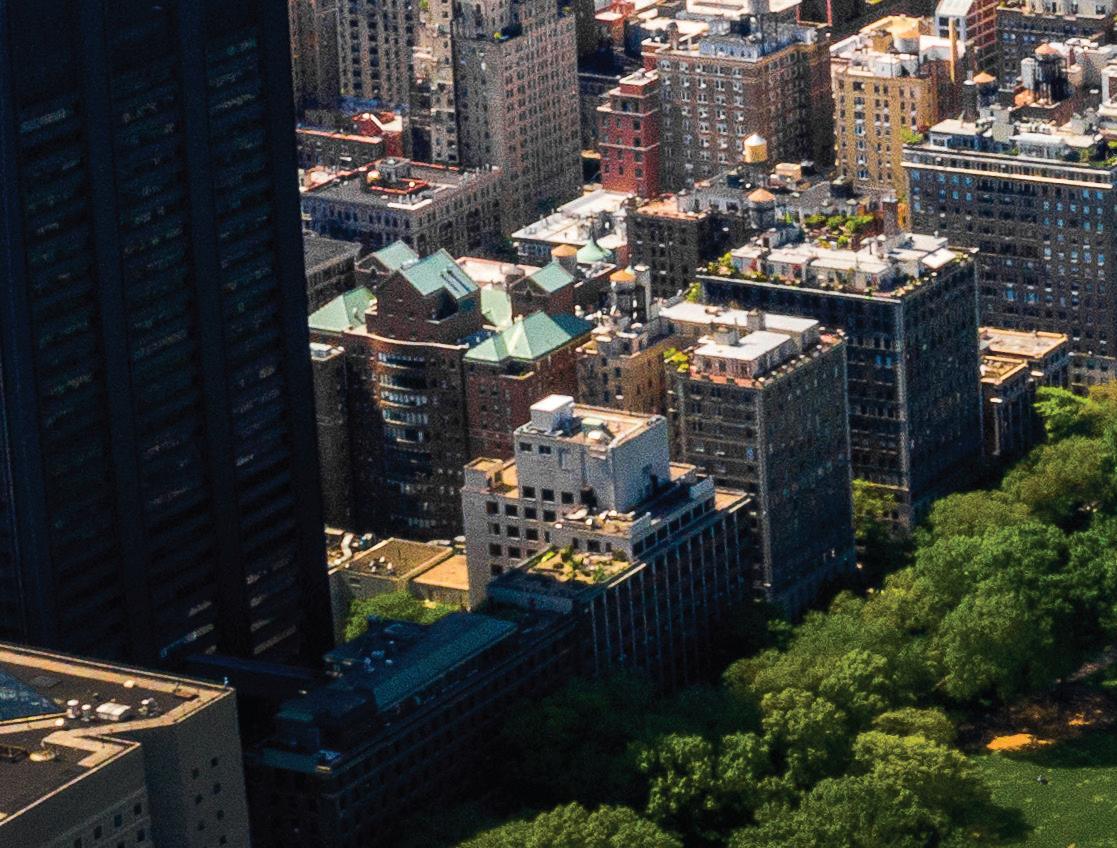



And the list goes on... Hofstra University has also greatly clashed with the idea that a new casino could improve its setting. A letter from the university trustees explained that 40,000 students, from preschool age to graduate studies, attend schools in the Nassau Hub, and that a casino would be ‘inappropriate’ for the demographic. The letter said neither the students nor suburban communities should be “exposed to the increased traffic congestion, crime, economic harm to local businesses and other negative impacts that a casino development would likely bring.” Long Island University and Nassau Community College would rather work together with its potential new casino neighbor, Las Vegas Sands, to create a new hospitality management program for interested students.
Opposition also comes from casino operators in New Jersey (although this is rather predictable). The East Coast Gaming Congress discussed the potential adverse effects of New York casinos, including a loss of up to 30% of Atlantic City casino revenue due to competition with the allure of the Empire State. Upstate New Jersey and Downstate New York may find their residents wanting to gamble under the bright lights of New York City rather than Jersey’s premier gambling destination. This has made Hard Rock International’s Chairman Jim Allen nervous about the brand’s Atlantic City casino, even though Hard Rock is expected to announce an application for a New York City casino license as well.
Looking to the cultural benefits of the process – perhaps acknowledging some of the anti-casino sentiment – Mohegan and Soloviev have worked with The New York State Restaurant Association (NYSRA) to create the Mohegan Momentum Partnership Program for the surrounding local businesses in Midtown East. The program will support hospitality members by offering gaming-based rewards to future guests of the proposed Freedom Plaza when they patronize local shops, restaurants and businesses in the city.
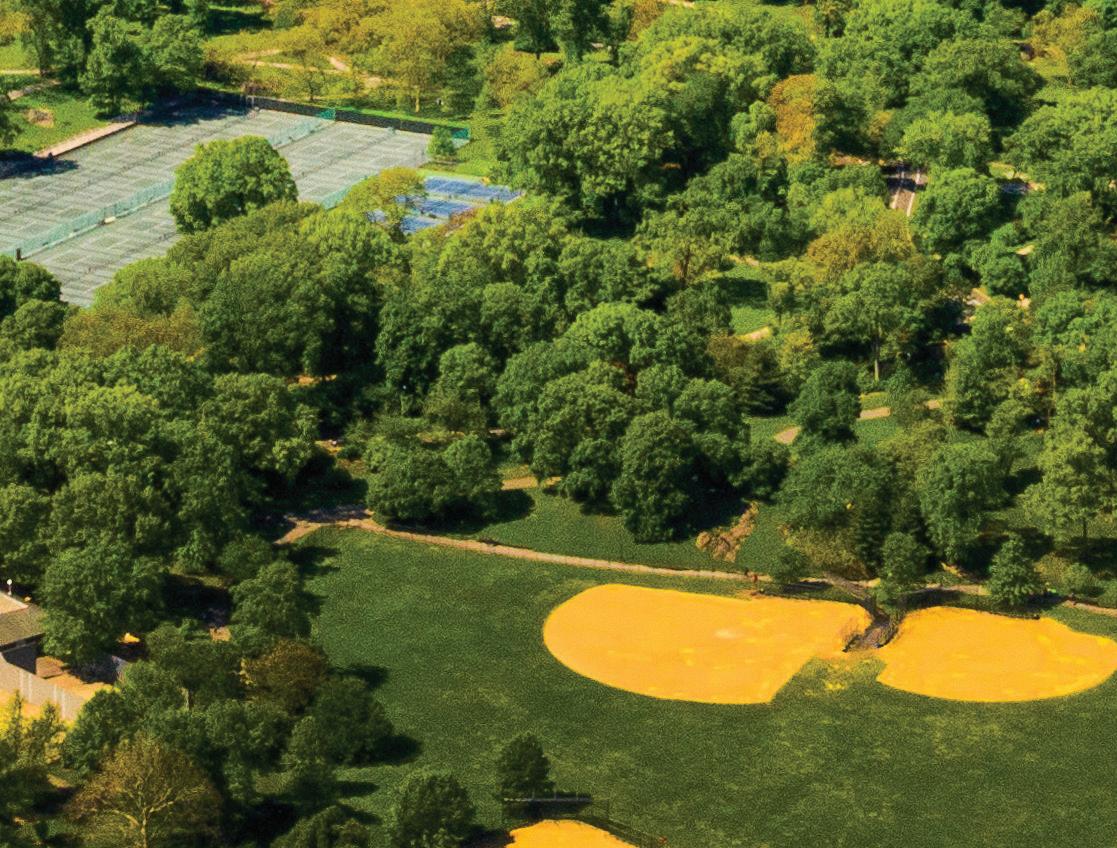
Melissa Fleischut, President and CEO of NYSRA, said, “This program goes beyond traditional incentives and investments. Local restaurants will have unprecedented access to a larger customer base, prosperous partnerships and brand awareness exceeding what many owners would be able to achieve independently.” Hershman stated in a press release about the program that its mission is to “address vital community needs, which are being communicated in meaningful conversations with local stakeholders.”
IT’S UP TO YOU, NEW YORK, NEW YORK



Each potential developer has listed the creation of revenue, jobs and exciting attractions as reasons to let their casinos take root and flourish, but the surrounding communities must be convinced. The Gaming Facility Location Board has released a document stating that the organization “expects to hear a variety of viewpoints from communities potentially impacted by proposed projects.” The 70-page document, published in January this year, also says that the board “welcomes” local and community input, and “will consider all public comments received during the process.”
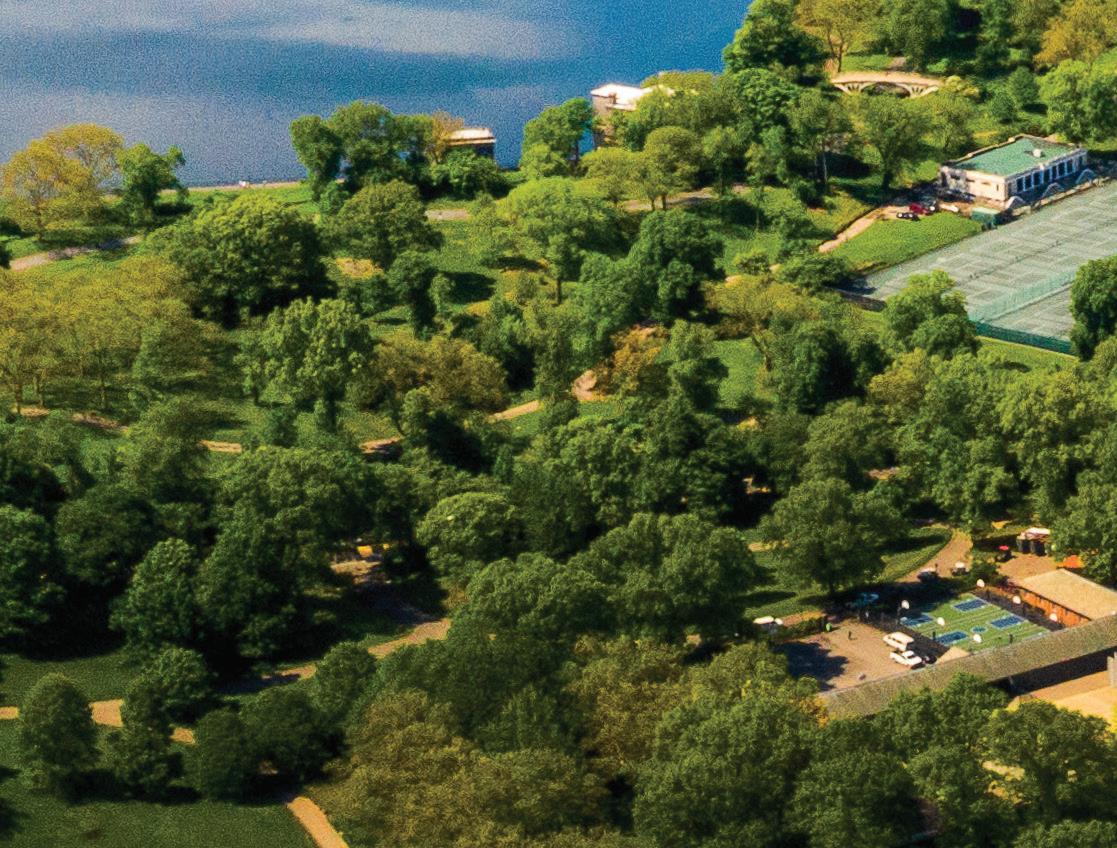
Hershman’s time with Gaming America ended with the CEO full of confidence and hope for Soloviev and Mohegan’s Freedom Plaza. “We, like everyone else bidding on this project, are in the process of working with building architects, landscape architects, and land use attorneys to finalize the designs and plans. And we look forward to what will hopefully be a fair process of judging by the state authorities and the city authorities. But I do believe that, if the license is awarded on merit, we have the best site and the best plan.”
Just like the World Cup, the new Empire State casino must play the game, advance from the group stage and win outright before it can truly call itself the best.
